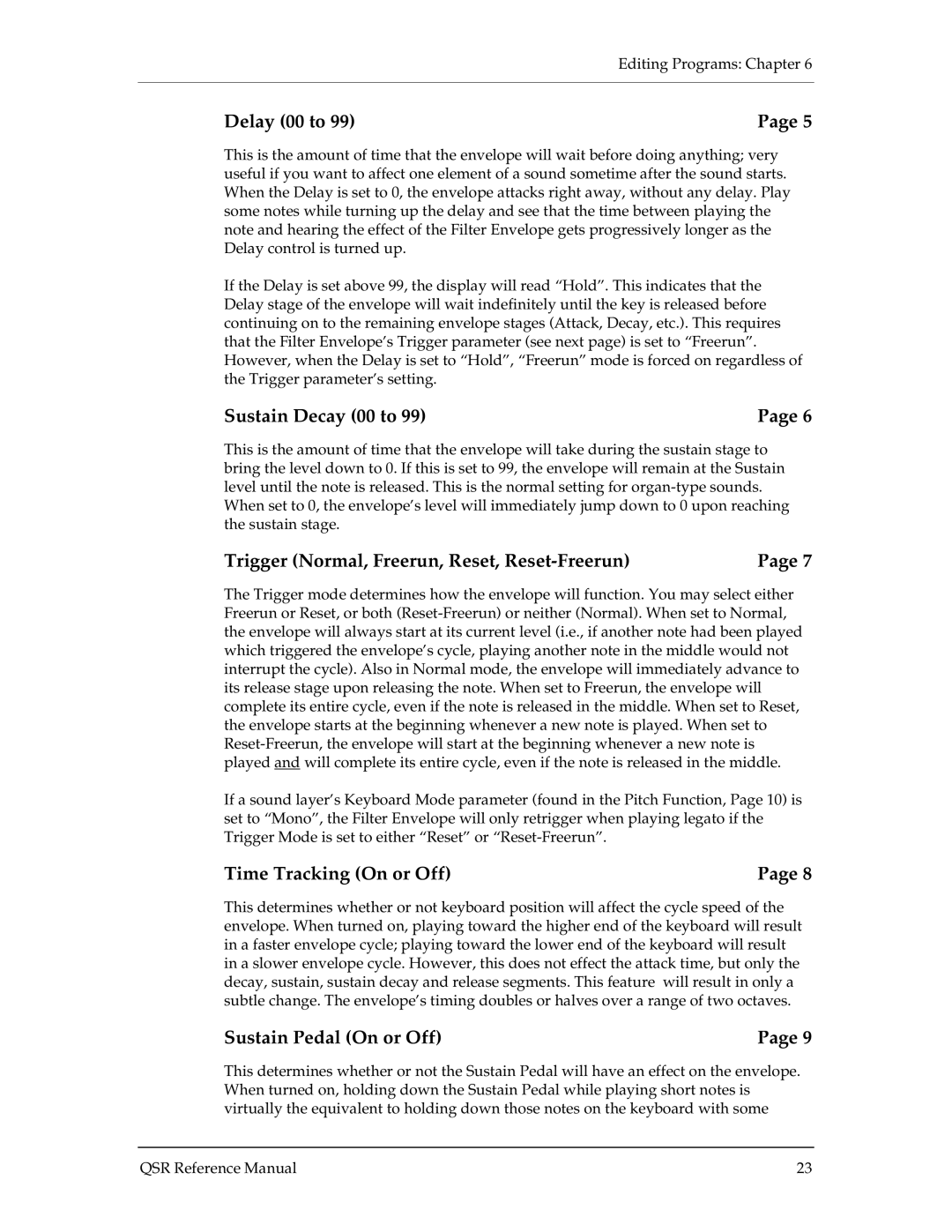
Editing Programs: Chapter 6
Delay (00 to 99) | Page 5 |
This is the amount of time that the envelope will wait before doing anything; very useful if you want to affect one element of a sound sometime after the sound starts. When the Delay is set to 0, the envelope attacks right away, without any delay. Play some notes while turning up the delay and see that the time between playing the note and hearing the effect of the Filter Envelope gets progressively longer as the Delay control is turned up.
If the Delay is set above 99, the display will read “Hold”. This indicates that the Delay stage of the envelope will wait indefinitely until the key is released before continuing on to the remaining envelope stages (Attack, Decay, etc.). This requires that the Filter Envelope’s Trigger parameter (see next page) is set to “Freerun”. However, when the Delay is set to “Hold”, “Freerun” mode is forced on regardless of the Trigger parameter’s setting.
Sustain Decay (00 to 99) | Page 6 |
This is the amount of time that the envelope will take during the sustain stage to bring the level down to 0. If this is set to 99, the envelope will remain at the Sustain level until the note is released. This is the normal setting for
Trigger (Normal, Freerun, Reset, | Page 7 |
The Trigger mode determines how the envelope will function. You may select either Freerun or Reset, or both
If a sound layer’s Keyboard Mode parameter (found in the Pitch Function, Page 10) is set to “Mono”, the Filter Envelope will only retrigger when playing legato if the Trigger Mode is set to either “Reset” or
Time Tracking (On or Off) | Page 8 |
This determines whether or not keyboard position will affect the cycle speed of the envelope. When turned on, playing toward the higher end of the keyboard will result in a faster envelope cycle; playing toward the lower end of the keyboard will result in a slower envelope cycle. However, this does not effect the attack time, but only the decay, sustain, sustain decay and release segments. This feature will result in only a subtle change. The envelope’s timing doubles or halves over a range of two octaves.
Sustain Pedal (On or Off) | Page 9 |
This determines whether or not the Sustain Pedal will have an effect on the envelope. When turned on, holding down the Sustain Pedal while playing short notes is virtually the equivalent to holding down those notes on the keyboard with some
QSR Reference Manual | 23 |
